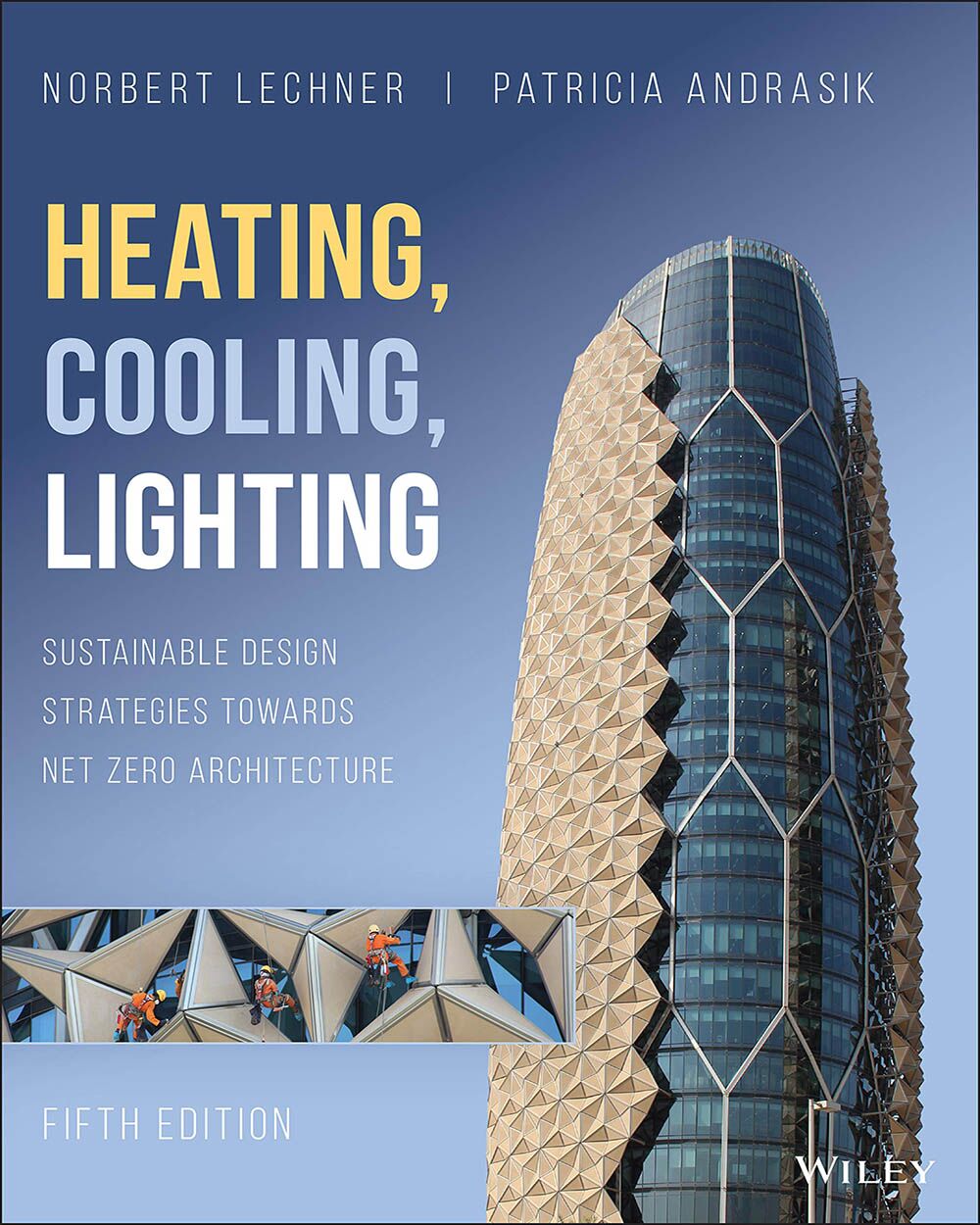
Heating, Cooling, Lighting Sustainable Design Strategies Towards Net Zero Architecture
Lechner's Heating, Cooling, Lighting teaches all of the important principles of sustainable design relating to the mechanical and electrical systems of a building. The newest edition of Heating, Cooling, Lighting covers basics like passive cooling, daylighting, and shading.
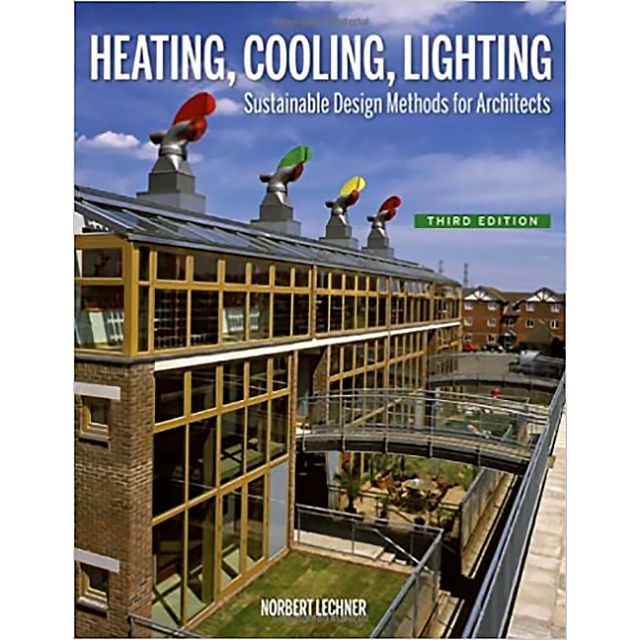
Heating, Cooling, Lighting Design Methods for Architects by Norbert Lechner Builder's Book
By detailing the many factors that contribute to the comfort in a building, this book helps architects minimize mechanical systems and energy usage over the life of the building by siting, building.
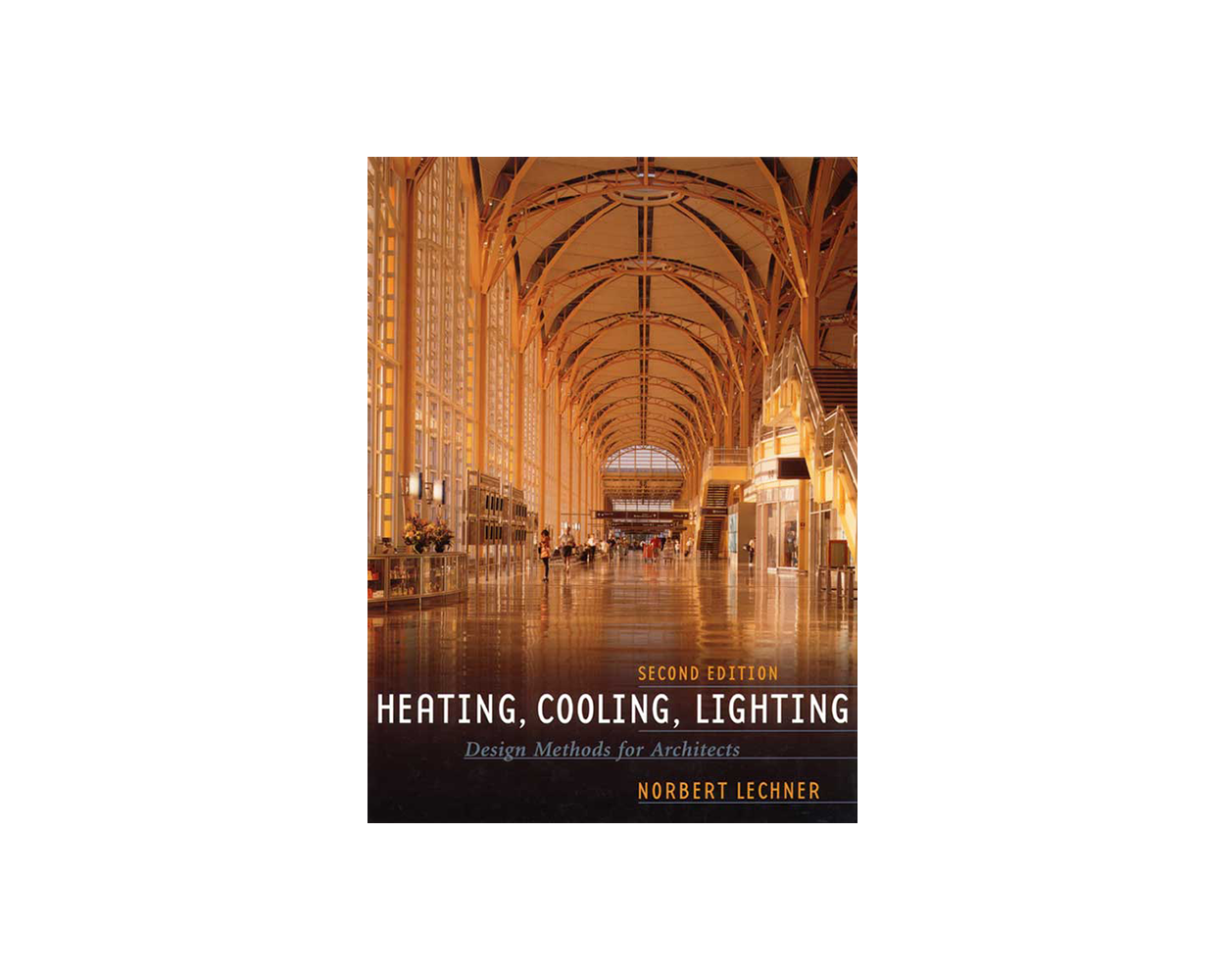
Heating, Cooling, Lighting Design Methods for Architects by Norbert Lechner Builder's Book
For over 25 years Heating, Cooling, Lighting: Sustainable Design Strategies Towards Net Zero Architecture has provided architects and design professionals the knowledge and tools required to design a sustainable built environment at the schematic design stage. This Fifth Edition offers cutting-edge research in the field of sustainable.
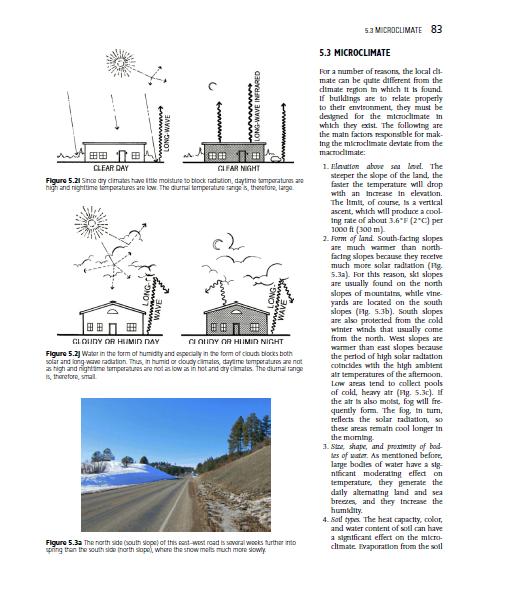
Norbert Lechner Heating, Cooling, Lighting Sustainable Design Methods for Architects 29
This Fifth Editionofferscutting-edge research in the field of sustainable architecture and designand has been completely restructured based on net zero design strategies.Reflecting the latest developments in codes, standards, and rating systems for energy efficiency,Heating, Cooling, Lighting: Sustainable Design Strategies Towards Net Zero Archi.

Passive Solar Heating, Cooling, and Lighting The Self Sufficient HomeAcre
Heating, Cooling, Lighting: Sustainable Design Methods for Architects, 4th Edition. Home. Browse by Chapter. Browse by Chapter. Browse by Resource. Browse by Resource. More Information. More Information. Title Home on Wiley.com . How to Use This Site. Table of Contents. Table Of Contents.
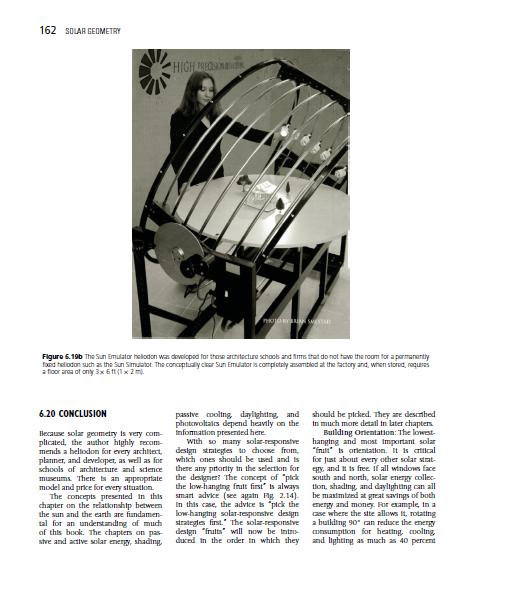
Norbert Lechner Heating, Cooling, Lighting Sustainable Design Methods for Architects 29
The essential guide to environmental control systems in building design . For over 25 years Heating, Cooling, Lighting: Sustainable Design Strategies Towards Net Zero Architecture has provided architects and design professionals the knowledge and tools required to design a sustainable built environment at the schematic design stage.This Fifth Edition offers cutting-edge research in the field.

Buy Heating, Cooling, Lighting Sustainable Design Strategies Towards Net Zero Architecture
Heating, Cooling, and Lighting is the industry standard text on environmental control systems with the emphasis on sustainable design.
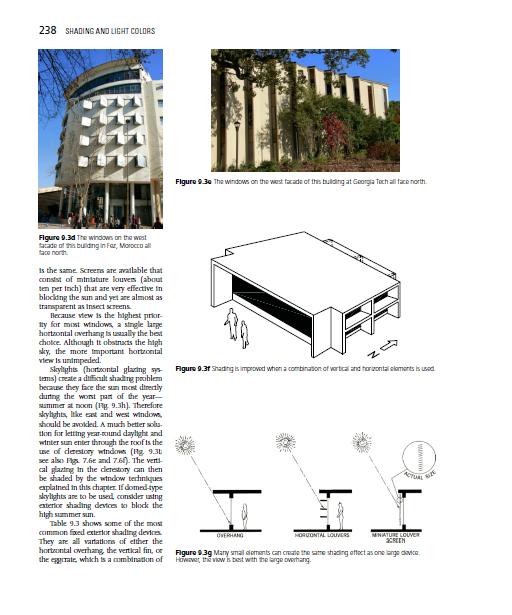
Norbert Lechner Heating, Cooling, Lighting Sustainable Design Methods for Architects 29
Welcome to the Web site for Heating, Cooling, Lighting: Sustainable Design Methods for Architects, 3rd Edition by Norbert Lechner. This Web site gives you access to the rich tools and resources available for this text. You can access these resources in two ways: Using the menu at the top, select a chapter.
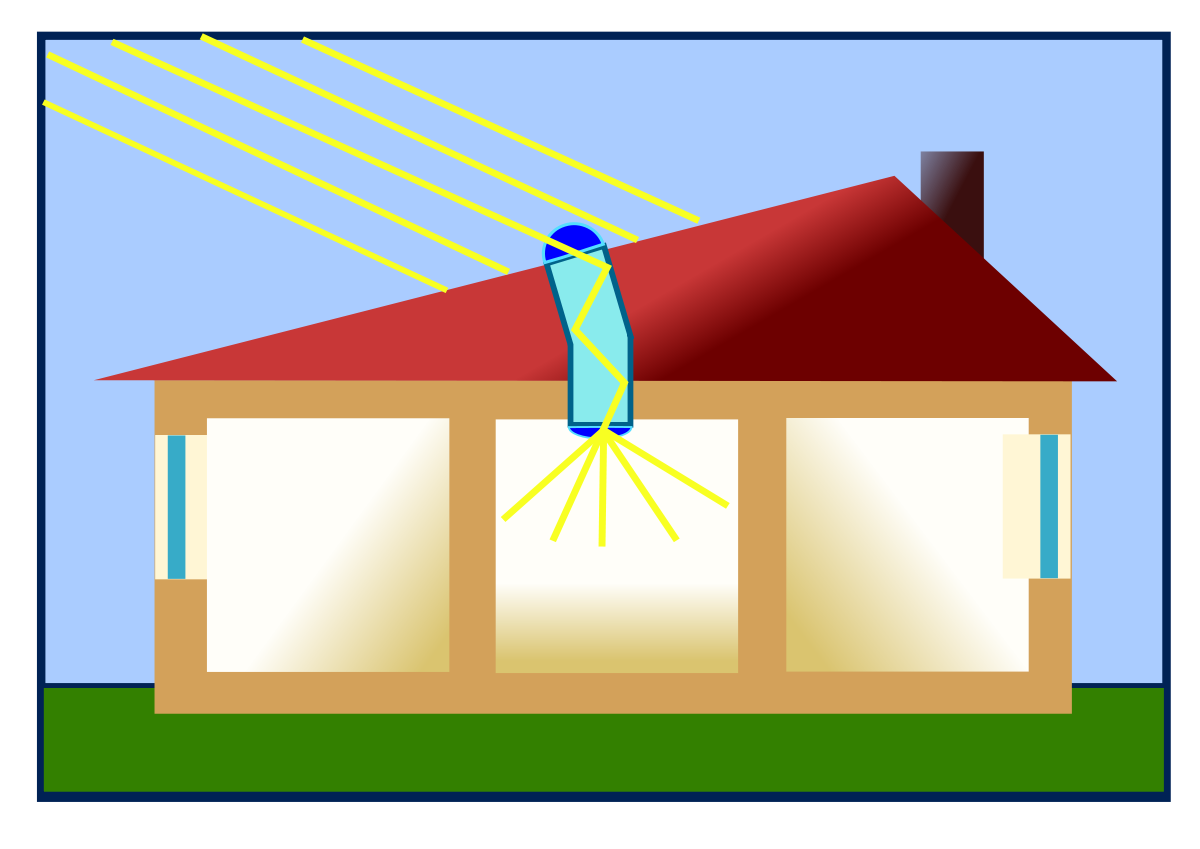
Passive Solar Heating, Cooling, and Lighting The Self Sufficient HomeAcre
This is possible because there is thermal energy available in the air, even in very low temperatures. For example, air at -18°C still has 85% of the thermal energy as air at 21°C. These systems are also capable of switching to a cooling mode. Switching from an oil heating system to an electric cold climate air source heat pump can save you money.
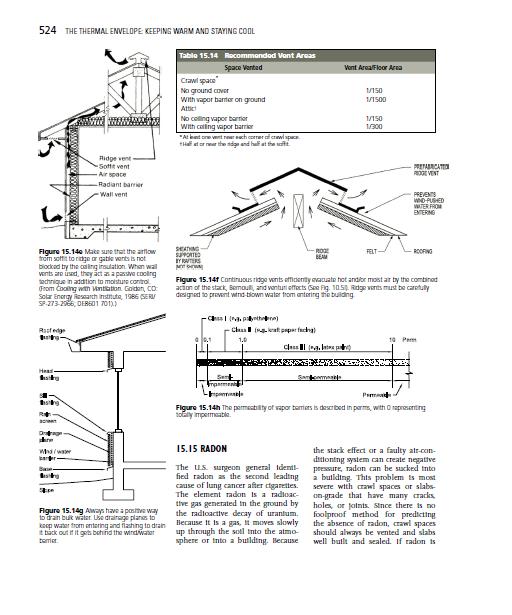
Norbert Lechner Heating, Cooling, Lighting Sustainable Design Methods for Architects 29
For years, Heating, Cooling, Lighting has supplied architects and students with the strategies needed for initial design decisions for building systems. The book looks at how to design the form of the building itself to take advantage of natural heating, cooling, and lighting and how to best utilize active mechanical equipment to satisfy the.
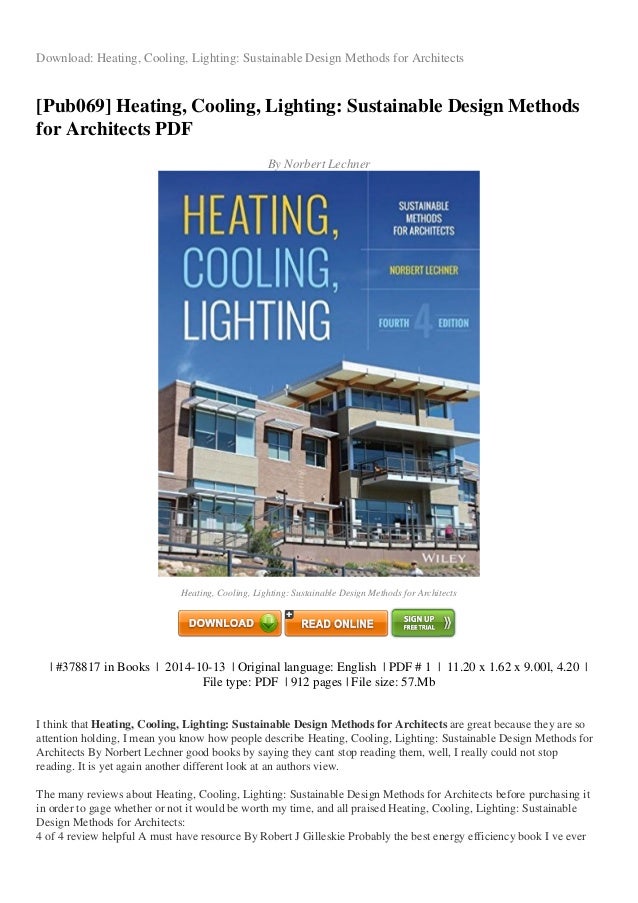
REVIEW Heating coolinglightingsustainabledesignmethodsforarchitectspdf35051
Heating, Cooling, Lighting: Sustainable Design Strategies Towards Net Zero Architecture is a go-to resource for practicing professionals and students in the fields of environmental systems technology or design, environmental design systems, construction technology, and sustainability technology. Read more. Previous page.
.jpg)
Heating, Cooling, Lighting Sustainable Design Methods for Architects (Inbunden, 2014)
HEATING, COOLING, AND LIGHTING AS FORM-GIVERS IN ARCHITECTURE 1 1.1 Introduction 2 1.2 Indigenous and Vernacular Architecture 3 1.3 Formal Architecture 5 1.4 The Architectural Approach to Sustainable Design 8 1.5 Dynamic versus Static Buildings 11 1.6 Resilient Design 12 1.7 Biophilic Design 12 1.8 Color and Ornamentation 12
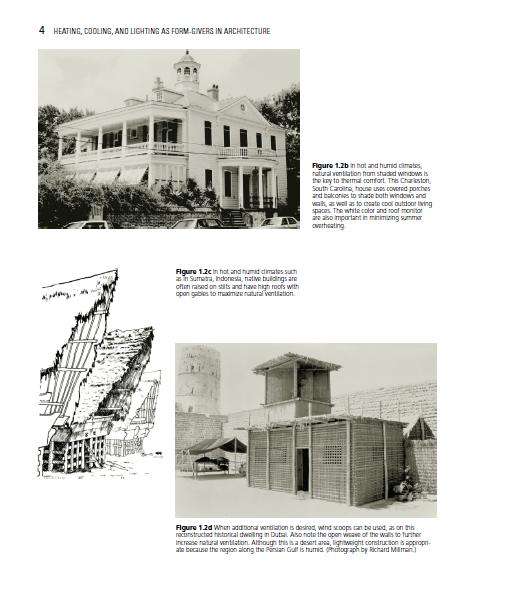
Norbert Lechner Heating, Cooling, Lighting Sustainable Design Methods for Architects 29
Technological advancements also make a cold-climate heat pump perfect for heating and cooling a small house. On the other hand, mini-splits, considered air-to-air heat pumps, are an excellent.

Bathroom (zone 3) light and heat unit 2 in 1. 750 watts element heating output. 30cm stainless
Using a three-tiered approach, Heating, Cooling, Lighting: Design Methods for Architects systematically and methodically seeks solutions to some of a building s most difficult design problems. The first tier centers on load avoidance. Here the need for heating, cooling, and lighting is minimized by the design of the building itself. The second.

Norbert Lechner Heating, Cooling, Lighting Sustainable Design Methods for Architects 29
Heating, Cooling, Lighting: Sustainable Design Strategies Towards Net Zero Architecture is a go-to resource for practicing professionals and students in the fields of environmental systems technology or design, environmental design systems, construction technology, and sustainability technology.
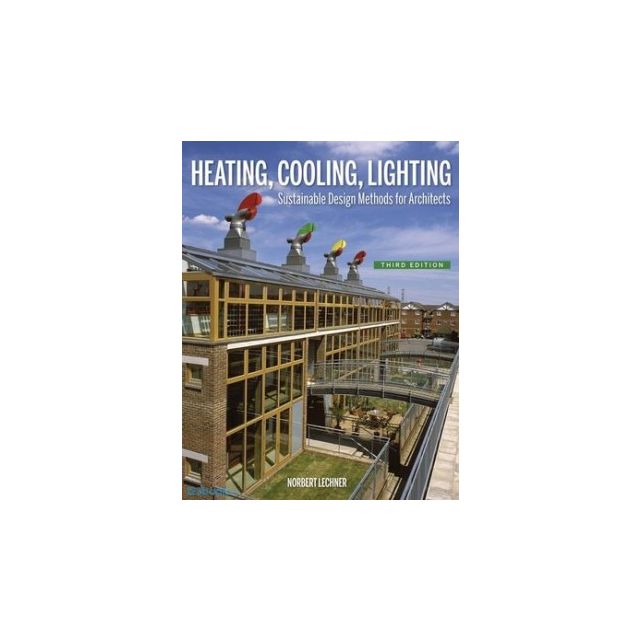
Heating, Cooling, Lighting Design Methods for Architects by Norbert Lechner Builder's Book
For years, Heating, Cooling, Lighting has supplied architects and students with the strategies needed for initial design decisions for building systems. The book looks at how to design the form of the building itself to take advantage of natural heating, cooling, and lighting and how to best utilize active mechanical equipment to satisfy the.